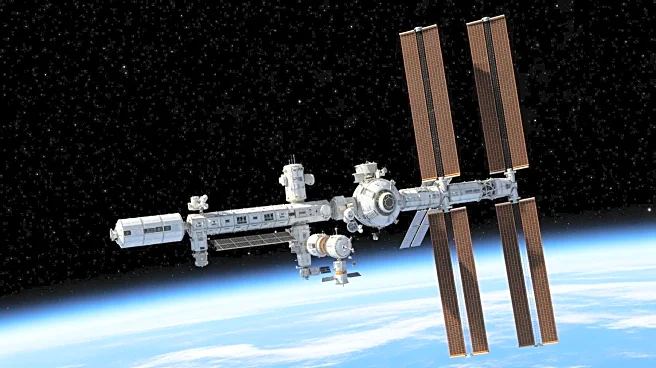What's Happening?
The International Space Station (ISS) is celebrating 25 years of continuous human habitation. Since November 2, 2000, the ISS has been home to astronauts from various countries, conducting experiments
in microgravity. The station, a collaborative effort between the United States, Russia, and other nations, orbits Earth at an altitude of approximately 250 miles. Over the years, the ISS has expanded from a basic three-room structure to a complex laboratory the size of a football field. It has hosted 290 people from 26 countries, facilitating research that cannot be conducted on Earth.
Why It's Important?
The ISS represents a significant achievement in international cooperation and space exploration. It has provided invaluable insights into the effects of long-term space travel on the human body, contributing to future missions to the Moon and Mars. The station's experiments have advanced scientific knowledge in fields such as biology, physics, and materials science. As the ISS approaches its planned retirement in 2031, its legacy will influence the development of future space stations, potentially operated by private companies. The transition to commercial space stations marks a new era in space exploration and industry.
What's Next?
NASA plans to retire the ISS in 2031, with SpaceX assisting in its deorbiting process. The agency is looking to transition to privately operated space stations, which could offer new opportunities for research and commercial activities in space. China's Tiangong space station is already operational, indicating a shift in the landscape of space exploration. The future of human spaceflight will likely involve increased collaboration between government agencies and private companies, expanding the possibilities for scientific discovery and economic development in space.









